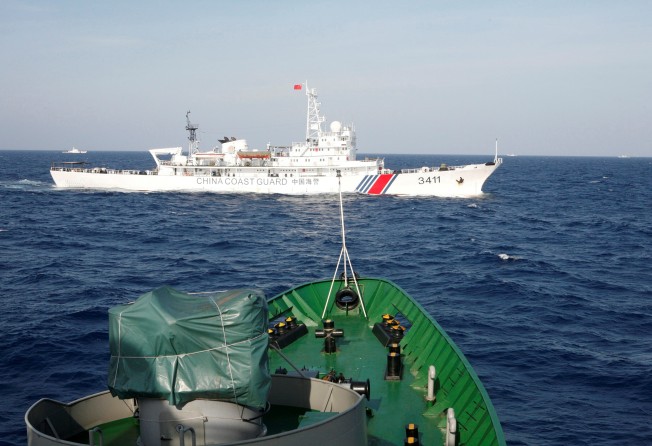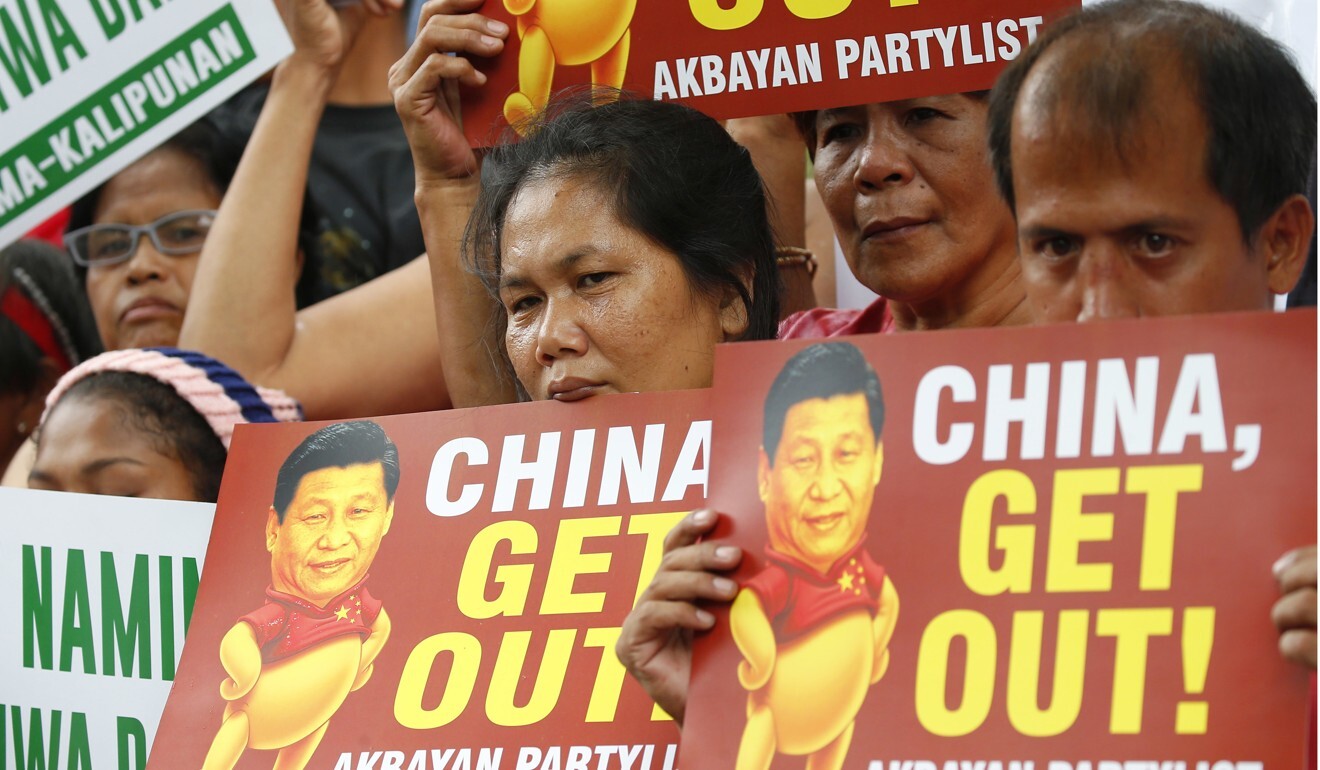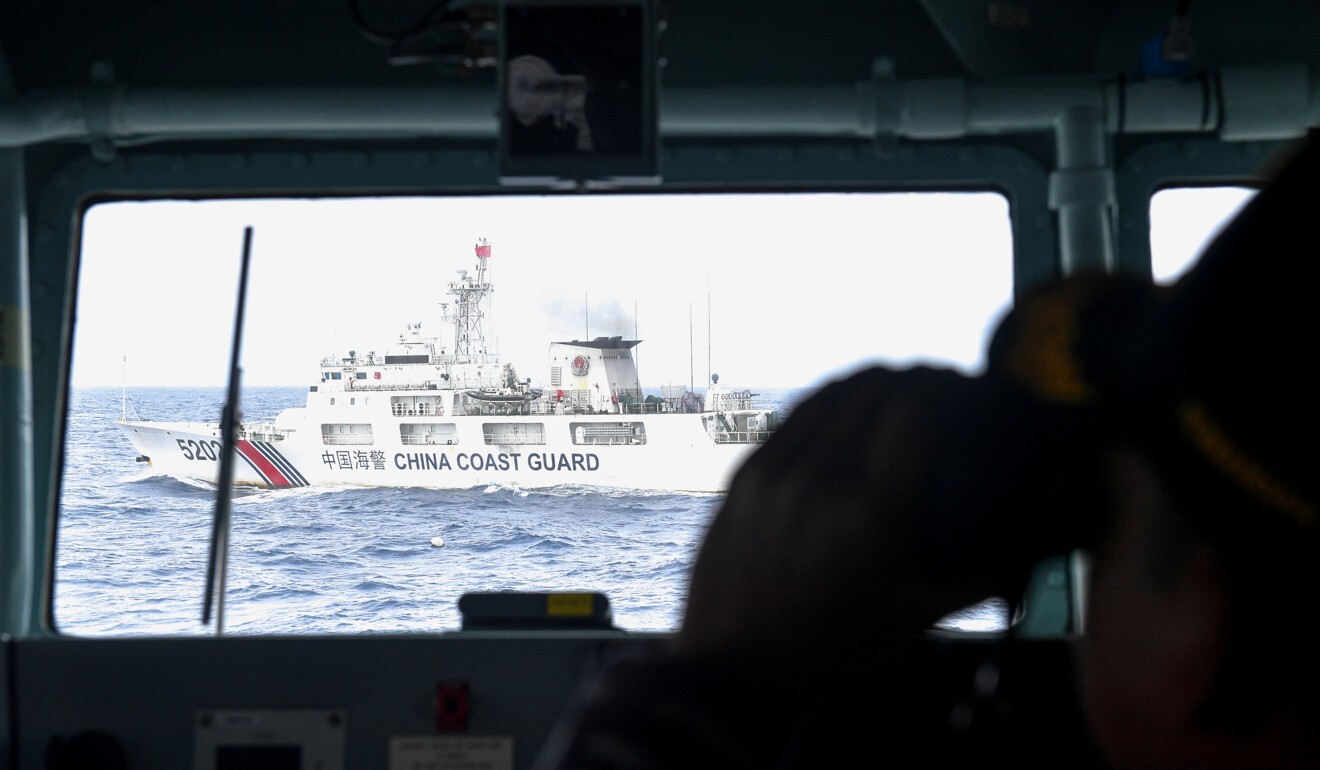South China Sea neighbours uneasy as Beijing expands enforcement actions
- Beijing’s recent expansion of domestic law enforcement tools creates new tension in region
- Asean official says 10-member group is watching situation closely

Southeast Asian nations are increasingly uneasy about their giant neighbour China as Beijing moves beyond island-building and military activities to administrative and law enforcement measures to solidify its claims in the South China Sea.
China’s recent moves to create two administrative districts as well as naming 80 geographical features in the sea have drawn protests from other claimants, like Vietnam.
Also causing their unease is China’s recent expansion of its domestic law enforcement tools to the disputed region, according to officials and experts in the region.
They are also worried that China, already engaged in a power struggle with the United States, is increasingly likely to find itself in direct conflict with smaller claimant states as it seeks to counter their efforts to develop fishing and energy resources in the region.
On April 1, the Chinese coastguard launched an eight-month law enforcement campaign named “Blue Sea 2020”, with one of its stated aims being to crackdown on “violations in offshore oil exploration and exploitation”, as well as marine and coastal project construction.
The campaign is a multi-agency effort between the coastguard and the transport, natural resources, and environment ministries.
China has so far released only accounts of recent operations targeting domestic violations. But diplomats and experts in the region believe the directive could be extended to the disputed waters of the South China Sea.
“There is only very little information available about the campaign, but we are watching closely to find out what the implications are for the South China Sea,” said a diplomat from the Association of Southeast Asian Nations (Asean).
Another Asian diplomat said his country was concerned about China’s recent actions in the South China Sea, undertaken as other countries, in particular the US, were preoccupied with dealing with the coronavirus.

China and Vietnam clashed last month over an incident involving a collision between a Chinese maritime surveillance vessel and a Vietnamese fishing boat near the Paracel Island chain, with each accusing the other of deliberate ramming.
Beijing on Friday announced the launch of its latest campaign to “enhance law enforcement” regarding this year’s summer fishing moratorium in the Bohai Sea, Yellow Sea, East China Sea and all waters to 12 degrees north latitude of the South China Sea.
The “fishing boat regulation” and “crackdown on illegal activities”, with the aim to “protect the fishery resources in China” would be carried out by the coastguard and the agriculture ministry, Xinhua reported.
Observers said the new measures were part of Beijing’s efforts to consolidate its claims in the South China Sea.
“China appears to have moved beyond the primary focus of building physical capacity and is now on a parallel track of promoting integration and multi-agency coordination and cooperation – something that the various Asean claimants are still weak in,” said Collin Koh, a research fellow at the Institute of Defence and Strategic Studies at the S. Rajaratnam School of International Studies in Singapore.
China claims more than 80 per cent of the energy-rich sea and has been increasingly assertive in blocking other claimants like Vietnam, the Philippines and Malaysia, from exploiting oil, gas and fishing resources in the region.
A three-way conflict has been simmering in recent months over Malaysia’s attempts at energy exploration in the area.
China expressed its opposition by deploying the government research ship Haiyang Dizhi 8 together with coastguard vessels to follow a drillship contracted to Malaysia’s state-owned Petronas that was operating within Malaysia’s exclusive economic zone.
Malaysia’s energy exploration blocks, some of which fall within the overlapping continental shelves of Malaysia and Vietnam, have also drawn protest from Hanoi, which deployed one of its vessels to tail the Malaysian ship.
The situation was further complicated by the intensifying US-China rivalry. US warships, joined by an Australian frigate, conducted a joint exercise near the site of Malaysia’s operations.

US Secretary of State Mike Pompeo on Thursday called Beijing a bully and accused it of exploiting the world’s preoccupation with the Covid-19 pandemic. While China hit back, calling Washington a troublemaker in the region, it has sought to play down regional tensions with its neighbours.
Foreign ministry spokesman Geng Shuang said last week that the survey ship was “conducting normal activities in waters under Chinese jurisdiction” and described the situation in the South China Sea as “basically stable”.
Malaysia’s Foreign Minister Hishammuddin Hussein called for a peaceful resolution to the dispute, but said Kuala Lumpur “remains firm in its commitment to safeguard its interests and rights in the South China Sea”.
Kang Lin, an expert on South China Sea affairs at Hainan University, said the competition for energy resources in the disputed waterway was only part of the wider issue of nations wanting to stake a claim in the region.
“With the recent crisis in the global oil industry, the economic value of oil and gas exploration has declined significantly. But the South China Sea is a different case,” he said.
“The political value of resource exploitation there will always exist. To explore and exploit resources is a way for countries to indirectly assert and cement their claims and to establish de facto control in the area, even as they are not recognised by other claimant countries.”
Zhu Feng, executive director of the China Centre for Collaborative Studies of the South China Sea at Nanjing University, said it was only natural for Beijing to stake its claim to the natural resources in the region and extend its domestic regulations to anywhere it considered its sovereign territory.
“All countries, in particular Vietnam and Malaysia, are rushing to establish control over the resources in the South China Sea before the finalisation of a code of conduct,” he said.
“China needs to take action when other countries are making their move.”